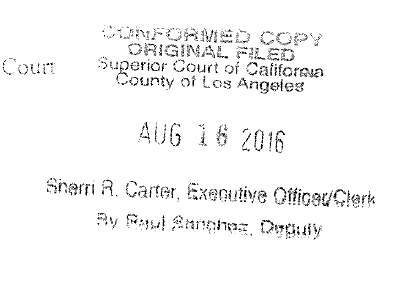I need a new lawyer.
A courageous lawyer in LA? They’re hard to find. When I Googled “crusading Los Angeles attorney,” all I found were obituaries. But that’s what I need — because my lawyer dumped me days before the most crucial hearing of my case.

So if you know a great wrongful termination and/or defamation lawyer in LA or in CA and able to litigate in LA, I need to hear from you post haste. You can email me here.
In 2015 I sued the LA Times for defamation and wrongful termination. This was after they published two articles accusing me of lying in a blog post based on an audio tape they claimed to have gotten from the LAPD. In fact, the audio proved I’d told the truth — but the Times still refuses to admit they’re wrong, publish a retraction and give me back my job as a cartoonist.
Rather than do the right thing and back down, the Times hit me with three “anti-SLAPP motions” that accuses mean old me, their former $300/week cartoonist, of suppressing the First Amendment rights of sweet little LA Times, owned by a wee $416 million corporation. They want me to pay them $300,000 for their legal fees. Believe it or not, they claim in LA Superior Court that they have the right to lie and defame people because they’re a newspaper and because there’s a “public interest” in what they publish.
On June 21, the Times won the first of their three anti-SLAPP hearings, against the individual defendants: Austin Beutner, the ex-publisher who received the sketchy audio from his pal LAPD Chief Charlie Beck; reporter Paul Pringle, who pretended to investigate it; and the authors of the two libelous articles about me, Nick Goldberg and Deirdre Edgar. This can be appealed within 60 days.
I can’t get into detail about what went down with my law firm, but the basics are this: I was always super polite and nice. After our June 21 defeat, I wanted to meet with my lawyers to discuss strategy so that we didn’t get beaten again at the June 28 hearing, the main event against the LA Times and Tronc, the Times’ parent company. They said no, they didn’t have time. I asked for a more experienced litigator. They said no.
They sent me a Notice of Termination. I don’t know why.
(To any lawyer reading this and considering whether to look at my case: I’ll send you all this stuff so you can see I’m telling you the real deal.)
So here’s the deal: Unless I find a new lawyer by Friday, July 14th, I — former $300/week cartoonist — will have to appear pro se, representing myself on California’s complicated anti-SLAPP law against one of the state’s top experts in the field, a partner at a giant law firm. It will be very Mr. Smith Goes to Washington, but I’m not a lawyer.
If I get a lawyer, he or she will get a few weeks to familiarize themselves with the case.
Lawyers all over California are turning me down: not enough time, too busy, on vacation, too complicated, troublesome to take over a case from another lawyer, conflict of interest. Even so, most agree that if we can get past anti-SLAPP and get our case in front of a jury, they will rule for justice and against the LA Times, which has been corrupted by the LAPD.
I knew there would be bumps in the road when I decided to take on the LA Times and by extension the LAPD, and this is a big one. I desperately need your help.
I can’t do this alone.
P.S. People are asking about the ACLU of Southern California. They are not returning my calls or emails.




